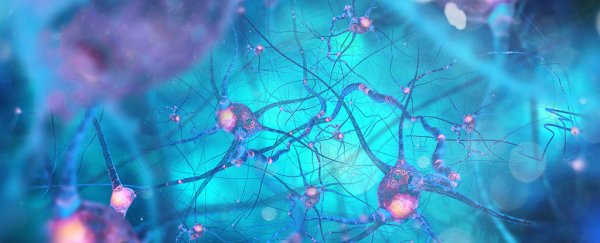Researchers have found solid evidence in support of a century old hypothesis claiming the body's own immune system plays a strong role in the development of Parkinson's disease.
While it's not clear if the discovery describes a primary cause or simply makes the existing condition worse, it could point the way to new forms of early diagnosis and ways to reduce the severity of its symptoms.
Parkinson's disease is a neurological condition affecting more than 10 million people worldwide, characterised by tremors, stiffness, and difficulty moving.
The symptoms are largely caused by a loss of neurons inside a part of the brain called the substantia nigra, cells that are responsible for producing a chemical called dopamine.
Without this, the region can't effectively filter messages from the brain to the body's periphery, causing a 'static hiss' of movement in the muscles.
As far back as 1925 the immune system has been blamed for causing the damage to these brain cells, but since this would require white blood cells to cross the blood brain barrier – something which has long been considered unlikely – the hypothesis failed to attract much attention.
In 2014, researchers from Columbia University Medical Center (CUMC) found markers called MHC proteins were displayed on the dopamine neurons, and that the immune system's T-cells could recognise and attack the brain cells.
"Right now, we've showed that certain neurons display antigens and that T-cells can recognise these antigens and kill neurons," lead researcher David Sulzer said at the time.
"But we still need to determine whether this is actually happening in people. We need to show that there are certain T-cells in Parkinson's patients that can attack their neurons."
This latest study led by CUMC and researchers from the La Jolla Institute for Allergy and Immunology in California has shown a normally soluble protein that aggregates in the substantia-nigra's cells called alpha-synuclein can trigger the body's immune system.
They took blood samples from 67 volunteers with Parkinson's disease and 36 controls, and mixed them with proteins found in nerve cells, including alpha-synuclein.
While there was little reaction in the samples taken from the control subjects, there was a clear immune response in those with Parkinson's, indicating that the white blood cells in their immune system had previously been exposed to the proteins.
"Our findings show that two fragments of alpha-synuclein, a protein that accumulates in the brain cells of people with Parkinson's, can activate the T cells involved in autoimmune attacks," said Sulzer.
So it seems as if T-cells might be fooled into thinking the body's dopamine producing brain cells are foreign due to a build-up of alpha-synculein, and somehow attacking them.
Genetic studies have also shown Parkinson's disease is linked with a variation in genes active in the immune response, adding further reason to suspect mistaken T-cells are responsible for the destruction of the brain's nerve cells.
"It remains to be seen whether the immune response to alpha-synuclein is an initial cause of Parkinson's, or if it contributes to neuronal death and worsening symptoms after the onset of the disease," said researcher Alessandro Sette from the La Jolla Institute for Allergy and Immunology.
In recent years, the evidence has been mounting linking the gut with Parkinson's disease, with gut bacteria stirring up trouble, and possibly affecting the brain via the vagus nerve.
As for that blood brain barrier, it might not be quite as impermeable to the immune system as previously thought. A study published in Nature earlier this year showed a link between gut microflora and ischemic strokes.
A great deal of research still needs to be done before we have a convincing model bringing together the multitude of threads of genetics, bacteria, and immune responses.
And we desperately need one – there is currently no way to diagnose Parkinson's before the symptoms set in.
If the immune system does play a role, not only could we possibly spot it sooner, we might even have a way to slow or stop the dopamine-producing brain cells from being destroyed.
"Our findings raise the possibility that an immunotherapy approach could be used to increase the immune system's tolerance for alpha-synuclein, which could help to ameliorate or prevent worsening symptoms in Parkinson's disease patients," said Sette.
This research was published in Nature.
